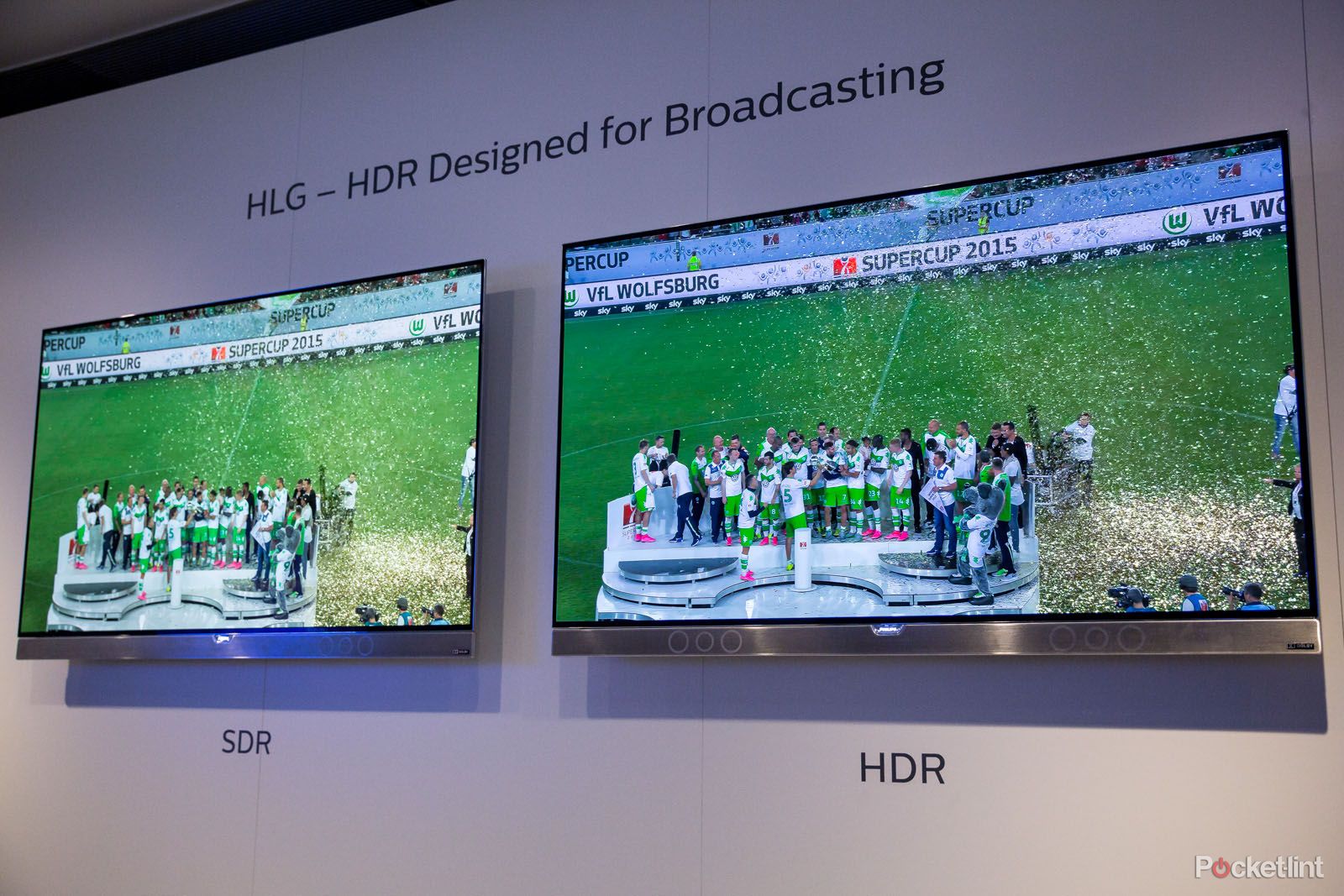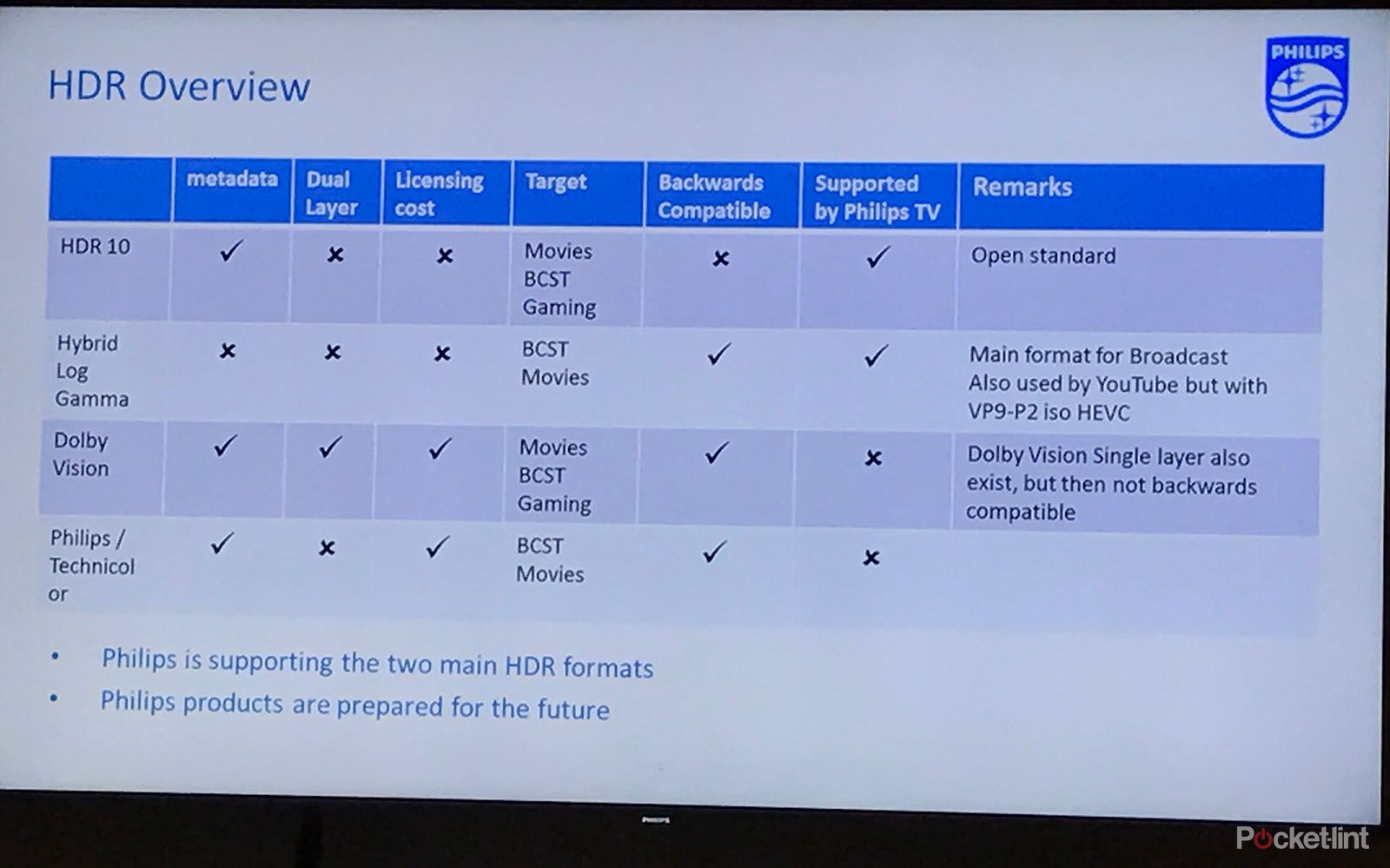Whenever there is a new TV image technology there is always a period of consumer confusion as multiple standards and formats appear. HDR is no exception.
There are now four competing high dynamic range standards, with 4K Ultra HD televisions adopting any number of them. HDR10, HLG, Dolby Vision and recent newcomer Technicolor are competing HDR standards that you'll see on different TVs and that only serves to complicate buying decisions.
TP Vision, which manufactures televisions under the Philips brand, believes that only two of them are necessary. It is only supporting HDR10 - the most commonly used format for movies and gaming - and HLG - the format TV broadcasters are expected to use. It will not support Dolby Vision.
- Philips 4K HDR TV choices for 2017: 9002 OLED, 7502, 6482 and 6412 compared
- What is Dolby Vision? Dolby's very own HDR TV tech explained
- What is HDR, what TVs support HDR, and what HDR content can I watch?
The company revealed that there are no plans to support Dolby Vision any time soon and that "HDR10 and HLG are good enough for consumers" on their own.
Speaking during the launch of the 2017 Philips TV line-up, director of product strategy and planning at TP Vision, Danny Tack, said that it isn't down to licensing fees, it's just not necessary to have Dolby Vision at present: "We are watching to see what happens with Dolby Vision but don’t have plans for it now," he explained.
"We’re not sure whether Dolby Vision would conflict with the new P5 processing engine anyway."
Instead, all Philips 4K HDR sets for 2017 will come with HDR10 and HLG from the box. HLG compatibility is also being rolled out to the company's 2016 Android TVs, alongside the Android M upgrade.
Tack had better news when it came to Quantum Dot TV tech. Philips plans to release its first Quantum Dot set later this year.


